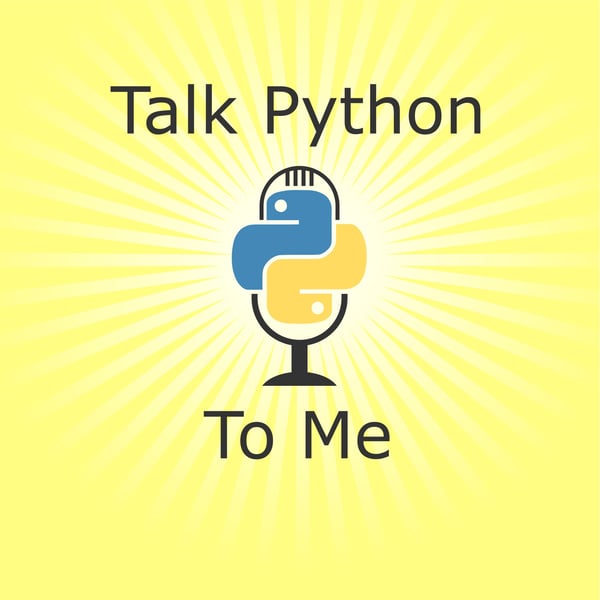#289: Discovering exoplanets with Python
Talk Python To Me
Michael Kennedy
4.8 • 635 Ratings
🗓️ 9 November 2020
⏱️ 47 minutes
🧾️ Download transcript
Summary
Transcript
Click on a timestamp to play from that location
| 0:00.0 | When I saw the headline, machine learning algorithm confirms 50 new exoplanets in historic first. |
| 0:05.3 | I knew that Python must be operating somewhere in the background, and that the story must be told. |
| 0:11.2 | That's how this episode was born. |
| 0:13.2 | Join David Armstrong and Jeff Gamper as they tell us how they use Python machine learning to discover not one, but 50 new exoplanets in pre-existing Kepler satellite data. |
| 0:23.8 | This is Talk Python to Me, episode weekly podcast on Python, the language, the libraries, the ecosystem, and the personalities. |
| 0:49.6 | This is your host, Michael Kennedy. Follow me on Twitter where I'm at M. Kennedy. Keep up with the show and listen to |
| 0:54.7 | past episodes at talk python.fm and follow the show on Twitter via at talk python. This episode is |
| 1:01.1 | brought to you by brilliant.org and us. David, Jeff, welcome to Talk Python to me. Yeah, thanks for |
| 1:07.9 | having us. Yeah, thanks for having us. Yeah, it's good to have you guys here. |
| 1:16.6 | You know, when I saw this article, its title was something like machine learning algorithm confirms 50 new exoplanets, a historic first. It didn't say anything about Python, but I'm like, |
| 1:22.4 | I got to contact these guys and find out the story because I bet you, Python is evolved and oh my gosh, what an |
| 1:28.6 | amazing discovery. |
| 1:30.0 | Python's all over astrophysics at the moment. |
| 1:31.9 | I mean, almost everyone uses it. |
| 1:33.5 | It's a good chance, I think. |
| 1:34.9 | Yeah, exactly. |
| 1:35.7 | I thought, okay, machine learning and astrophysics combined. |
| 1:38.9 | This has to be Python. |
| 1:39.8 | So I reached out to you guys and I'm really excited to have you on the show to talk about the research that you're doing, some of the discoveries that you've made. And it sounds also like this is kind of the beginning of the stories where things are going. Yeah. So this was really a test case we wanted to put together to build up for a load of big missions that are coming online soon. I mean, you might have heard of the Kepler satellite before, but it's been around for a while. |
| 2:02.1 | But it's the biggest data set we have for these Exoplanet sort of transits, I guess we'll talk about |
| 2:05.8 | in a bit. |
| 2:06.5 | But it's a perfect test case to work with. |
... |
Please login to see the full transcript.
Disclaimer: The podcast and artwork embedded on this page are from Michael Kennedy, and are the property of its owner and not affiliated with or endorsed by Tapesearch.
Generated transcripts are the property of Michael Kennedy and are distributed freely under the Fair Use doctrine. Transcripts generated by Tapesearch are not guaranteed to be accurate.
Copyright © Tapesearch 2025.

